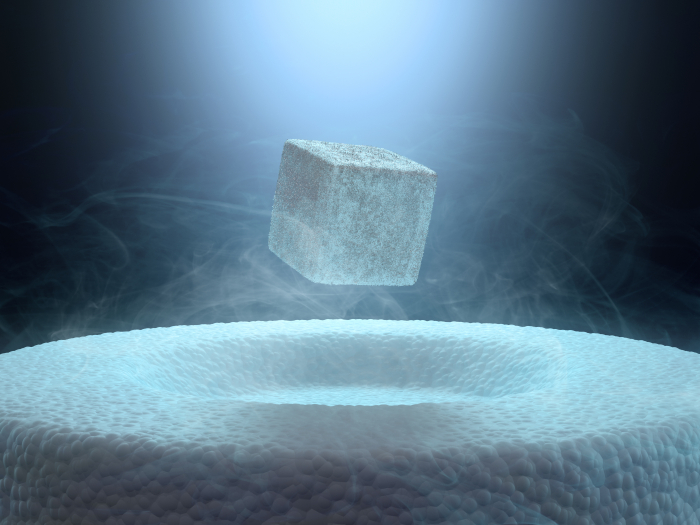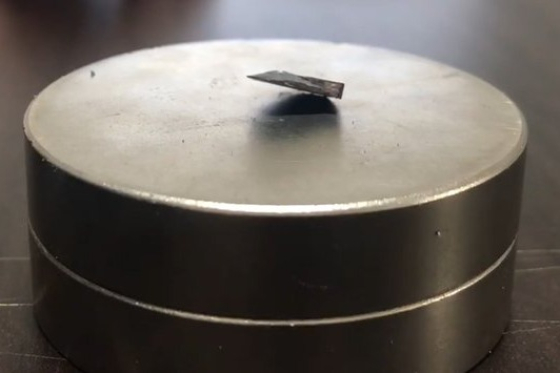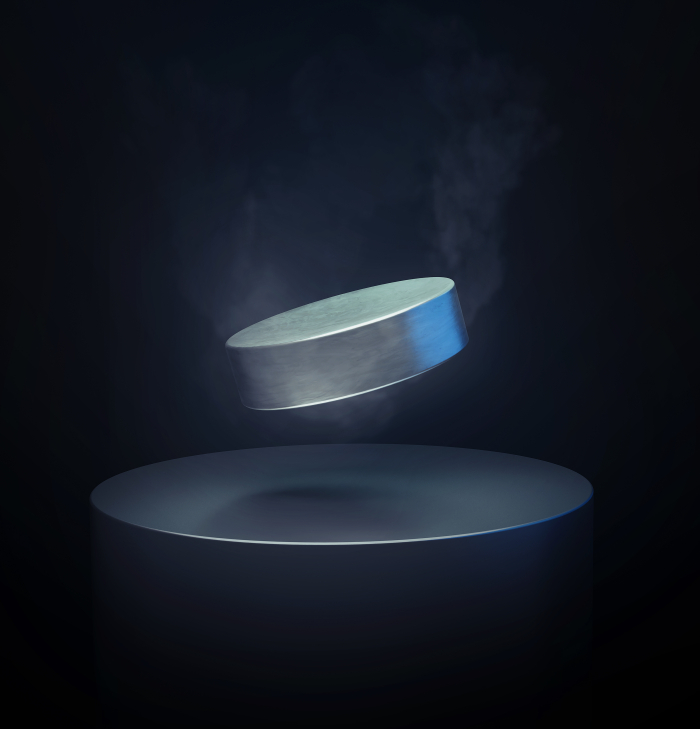Tech, Media & Telecom
Korea's superconductor stocks plunge on Nature report
The investor frenzy fizzled out after Max Planck Institute's findings; only Shinsung Delta continues to rally
By Aug 17, 2023 (Gmt+09:00)
3
Min read
Most Read
LG Chem to sell water filter business to Glenwood PE for $692 million


KT&G eyes overseas M&A after rejecting activist fund's offer


Kyobo Life poised to buy Japan’s SBI Group-owned savings bank


StockX in merger talks with Naver’s online reseller Kream


Meritz backs half of ex-manager’s $210 mn hedge fund



South Korean research team’s LK-99, behind the online sensation following its claim of room-temperature superconductor over the past four weeks, doesn’t have superconductivity, according to the scientific journal Nature on Wednesday.
“Researchers seem to have solved the puzzle of LK-99, and scientific detective work has unearthed evidence that the material is not a superconductor,” the weekly magazine said on Aug. 16.
Impurities in LK-99 – a compound of copper, lead, phosphorus and oxygen – were responsible for the sharp drops in electrical resistivity and partial levitation over a magnet, which looked similar to properties exhibited by superconductors, it added.
Despite Korean researchers’ claim early this month that LK-99 is genuine, some Korean stocks, which led the investor frenzy over the past four weeks, dropped on Aug. 17.
CLAIM OF DISCOVERY
A superconductor, touted as a state-of-art material, can levitate in a magnetic field and conduct electricity with zero resistance, thus having no loss of energy. It can speed up connections between computer chips, strengthen the electromagnetic field for magnetic resonance imaging (MRI) scanners and enhance the efficiency of power grids.
It was discovered by Dutch researcher and Nobel laureate Heike Kamerlingh-Onnes in 1911 for the first time. However, the material has not been successfully commercialized as it needs extremely low temperatures – the so-called high-temperature superconductor requires 77 Kelvin, minus 321.1 degrees Fahrenheit or minus 196.2 degrees Celsius.
On July 22, the Korean researchers submitted two papers that claim they have discovered room-temperature superconductivity to arXiv, a website for non-peer-reviewed preprints and postprints.

Dozens of global research teams have replicated LK-99 and concluded it is not a superconductor, but they haven’t clarified the actual properties of the material. On Aug. 14, Germany’s Max Planck Institute for Solid State Research team announced their findings on the question.
The Max Planck Institute team replicated LK-99, separated from impurities, and reported it is not a superconductor but an insulator with a resistance in the millions of ohms – which is too high to run a standard conductivity test, Nature said. The minor ferromagnetism and diamagnetism it showed were not enough for partial levitation, the team told the magazine.
According to Nature, the team has suggested that the hints of superconductivity seen in LK-99 were attributable to copper sulfide impurities, which were absent from their pure, single crystals. The resistivity of air-exposed copper sulfide drops dramatically below 104 degrees Celsius, said Prashant Jain, a professor at the department of chemistry of the University of Illinois Urbana-Champaign.

Some Korean stocks which are known to have relations with superconductor technologies plunged on Aug. 17.
Wonik PNE Co., a Kosdaq-listed battery charger maker, saw its shares drop 30% to close at 10,110 won ($7.53) on Thursday. Its stock jumped 76.7% from July 21 to Aug. 16.
Nuclear fusion energy firm Mobiis Co. share fell 21.5% to close at 3,615 won on Thursday. The stock more than doubled during the same period.
Non-ferrous metals maker Seowon Co. stock dropped 28.7% to finish at 2,000 won on Thursday. The company announced on the same day that its business is not related to superconductors.
Shinsung Delta Tech Co., a battery material maker of which market cap exceeded 1 trillion won on Aug. 16, continued to rally on the Kosdaq. Its stock jumped 15.2% to finish at 59,900 won on Thursday, 4.5 times the closing price on July 21.
Write to Jin-Won Kim at jin1@hankyung.com
Jihyun Kim edited this article.
More to Read
-
 Tech, Media & TelecomKorea's new superconductor will be verified: research team
Tech, Media & TelecomKorea's new superconductor will be verified: research teamAug 04, 2023 (Gmt+09:00)
4 Min read -
 Tech, Media & TelecomS.Korean academics to verify truth of room-temperature superconductor
Tech, Media & TelecomS.Korean academics to verify truth of room-temperature superconductorAug 02, 2023 (Gmt+09:00)
2 Min read
Comment 0
LOG IN


